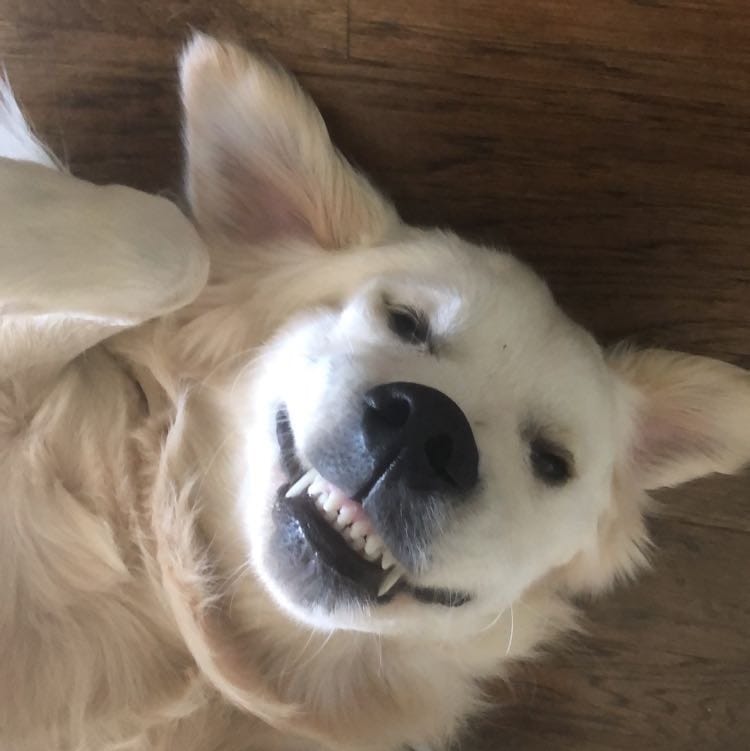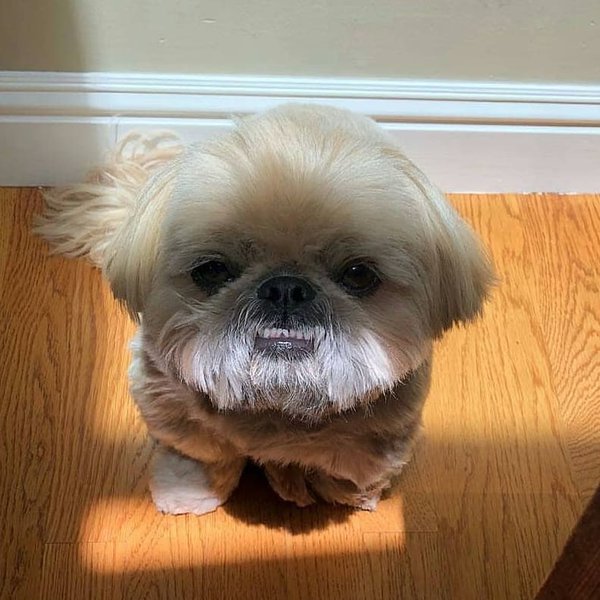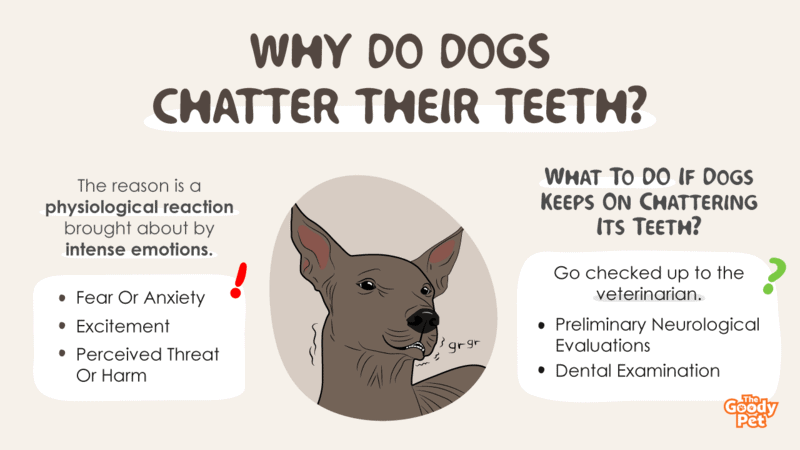One may find it odd when they hear their dogs making unusual sounds with their teeth as if they are shivering. Teeth chattering is the incredible sound produced when dogs bite their teeth in quick succession, very much similar to the way humans chatter when we shiver.
Teeth chattering normally does not last very long and is often over in a few seconds. Some of the causes why dogs chatter their teeth are not alarming, say, for example, your dog is just feeling the chilly weather. Or, the causes can also range from behavioral like anxiety and fear to a health problem such as epilepsy.
Regardless of the cause, allow us to emphasize that you should not mistake teeth chattering with other dog behaviors like “air snapping” or “jaw sparring”.
Air snapping is when dogs open and close their mouths as if biting the air which is some sort of a signal that they are about to bite you or another dog. And also, jaw sparring is when their teeth make clacking noises when they are at play.
In this article, we will tackle the different reasons why dogs chatter their teeth. We will separate it into three categories, namely, emotional, physical, and medical reasons. We will also discuss briefly the ways your veterinarian can diagnose the underlying reasons for this behavior.
Why Are My Dog’s Teeth Chattering?
One reason why your dog’s teeth are chattering is that it is a physiological reaction brought about by intense emotion. Some of these emotions are fear, excitement, and perceived threat.
Fear Or Anxiety
A dog can feel stressed out or nervous just like we humans. Getting introduced to a new environment or being left alone for a period of time can be stressful to some dogs.
Some pet parents might notice that their fur babies display these teeth chattering behavior every time they are about to leave for work or just going out for a brief errand.
In some cases, even a trip to the groomer or veterinarian could trigger teeth chattering, as well as loud noises like thunder or fireworks.
Teeth chattering is a form of behavioral defense mechanism that helps dogs deal with anxiety such as being separated from their humans or from loud noises.
This is the reason why it is important to train your furry baby at an early age to prevent such behavior. Other behavioral signs that your dog might be anxious include repeated pacing, panting, and barking.
Excitement
Sometimes the anticipation of something good happening is enough to make your dog’s teeth chatter.
Maybe you have just come home from work or you are teasing your dog with its favorite toy and this could make your dear Fido chatter its teeth with excitement.
Dogs have a variety of reactions to a given situation. Some dogs would chatter their teeth when they cannot contain their excitement or happiness. This is normal behavior for some dogs and should not be a cause for alarm.
Look at it this way, teeth chattering is probably comparable to us humans clapping our hands or jumping for joy when we get excited.
Perceived Threat Or Harm
Some dogs that feel threatened by another dog or person could also exhibit teeth chattering.
Dog owners might sometimes notice their dog exhibiting this behavior every time they go out for a walk and interact with other dogs that are bigger and more aggressive than them.
An encounter with a person they do not trust would also produce teeth chattering behavior.
Teeth chattering is a form of displacement behavior among dogs that indicates conflicting feelings and they do this to distract the potential threat. Teeth chattering could be their way of diverting the attention of the other dog and confuse it with the curious clacking noises.
Other displacement behaviors exhibited by nervous or anxious dogs are nose licking and spinning in circles.
Why Does My Dog’s Jaw Chatter When It Smells Something?

It’s because your dog is smelling a stimulus that caught its attention. It could be food or perhaps a female dog in heat.
Male dogs are more inclined in smelling urine to determine if a female dog is in heat. Teeth or jaw chattering allows him to determine the smell of the urine if he can begin the flirting process or not.
Apart from smelling something interesting, the other non-medical reason why dogs chatter their teeth is due to a dipping temperature. Let’s discuss these issues furthermore…
Interesting Smell
We all know that dogs have a very keen sense of smell with over 300 million scent receptors inside their noses.
Sometimes when they find some scent interesting, you will notice that they have a tendency to chatter their teeth. This is because they are not only smelling the scent but also tasting and analyzing it.
Located at the roof of a dog’s mouth behind the upper incisors is an organ referred to as Jacobson’s Organ, which is also known as the vomeronasal organ. It is like a secondary odor-detecting organ that receives chemical messages and relays them to specialized parts of the brain relating to mating and communication.
Male dogs use this organ when they sniff the urine of females in heat. Chattering their teeth allows the male to analyze and determine if the female is ready to mate.
They would sometimes even lick a tiny amount of urine and chomp on it with some foam forming around their mouths.
Feeling Cold
Sometimes, fido may not tolerate the cold weather and causes its jaw to chatter and shiver just as we humans do. It is our body’s and our dog’s way to keep warm. Don’t let the thick fur fool you into thinking they do not get cold.
Shivering forces the muscles in the body to move in order to warm the tissues. This allows the internal body temperature to rise to normal. The jaw and neck muscles similarly twitch to create friction, thus causing the teeth to chatter.
Keeping your dog warm with a sweater or giving him a nice little snuggle could do the trick in getting it cozy and comfortable.
Is Teeth Chattering A Medical Symptom?
Yes, teeth chattering could also be a manifestation of an illness. Do not take this lightly as teeth chattering could be one of the signs of any of the following health problems:
Dental Issues
If you notice prolonged teeth chattering on your dogs, it could be because it is suffering from some periodontal disease. Dogs with gum disease, cavities, plaque, and rotten teeth may sometimes chatter their teeth as a way of easing the oral pain.
Excessive drooling, bleeding, and a foul odor in the mouth are also signs of dental disease that you should be aware of. Dental disease affects 80% of all dogs and is the common medical condition treated by veterinarians.
Neurological Issues
Teeth chattering may be caused by a more serious neurological issue in some rare situations. If it is accompanied by facial paralysis, intense drooling, droopy eyelids, unnatural eye rotations, seizures, and inability to hold their heads straight, then your dog could be suffering from a neurological disease.

Epilepsy
Epilepsy is one such neurological disease and it is a disorder that affects approximately 0.75% of dogs. It can be genetic or from an unknown source and is characterized by quick outbursts of jaw clenching and teeth chattering.
Shaker Syndrome
This is another neurological issue that affects the dog’s nerve cells resulting in head and body tremors and teeth chattering. It is also referred to as “Little White Shaker Syndrome” since it affects mostly small-breed white dogs like the Maltese, Poodle, and West Highland White Terrier.
What Do I Do If My Dog Keeps On Chattering Its Teeth?
If you notice your furry pet chattering its teeth beyond the normal, then it is time to have him checked by the veterinarian.
They may do some preliminary neurological evaluations like checking the dilation of the eye’s pupil, the reflexes of its legs and body, and the way it walks.
A dental examination is also performed to make sure that there are no gum diseases, tooth abscesses, and other dental issues.
They may also ask if your dog had been vaccinated against canine distemper since this virus can affect your dog’s teeth, such as discoloration and the presence of pits.
The veterinarian may also order some blood work and X-rays to know the underlying health issues your dog may be suffering.
Having your dog checked by the veterinarian for the underlying causes of teeth chattering will ease your worries if it’s just normal physical or social behavior or a more serious health issue.






